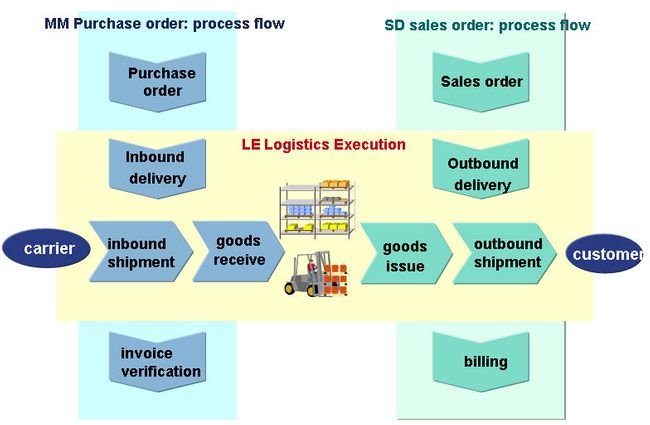The ERP SCM Logistics Execution System is a crucial and important component of the Supply Chain Management (SCM) system and allows the administrator to monitor, manage and control all the stages and processes that are a part of the same. With SAP modules in place, it is now possible to map the execution stages, right from procurement of raw materials to the distribution of the finished products as produced by the company. This core module has allowed users and manufacturers to plan and allocate the logistics involved and dispatch deliveries as per the requirement, while minimizing related hassles.

Breaking down the Module
The ERP SCM Logistics Execution System (LES) interconnects all the processes that are involved in the supply chain. These are procurement, order processing by various clients, production of goods based on the orders, storage of the manufactured products, Inventory Management (IM), shipping of the manufactured goods and management of sales details. It also includes two linked applications which are warehouse management and transportation management system. The core function of LES is to focus on the processing of goods and complex receipts, which would otherwise be a tedious task if done manually. Moreover, there would be chances of human error which can prove to be very costly.
With ERP (Enterprise Resource Planning) SCM LES, users can do the following:
- Order supplies with ease. The platform is quite user-friendly and enables users to place their orders, without facing any difficulty.
- Through this module, users can monitor the storage as well as manage the inventory in a quick and accurate manner.
- Once the supplies are ordered and the inventory for the same has been checked, users can track the production processes. The act begins with the checking of orders that are placed by the customers, followed by the tracking of manufacturing processes, till the time they are delivered.
- Apart from focusing on the requirements of clients and customers’, this SAP module makes it possible to manage Human Resources (HR) and other business assets that are involved in the logistics department.
- It allows users to exchange information with their customers as well as suppliers across different stages. This module offers a platform that makes communication channels between numerous departments clear and transparent.
- It is also possible for users to make their applications available online. Managing applications manually can get burdensome beyond a point but the Logistics Execution System (LES) module lends a helping hand and makes this procedure quite simple and efficient.
- LES also integrates the legacy and non-SAP applications seamlessly. This allows users to operate and monitor different logistical applications with ease.
Functionalities offered by the ERP SCM Logistics Execution System (LES)
This module ranks high on the functionality quotient and includes:
- Good receipt processing for inbound deliveries.
- Shipping.
- Direct store delivery (DSD).
- Warehouse Management (WMS, LE-IDW).
- Yard Management.
- Task and Resource Management (LE-TRM).
- Transportation (LE-TRA).
- Traders and Schedulers Workbench (TSW).
- Integration to extended Warehouse Management (eWM).
These functionalities incorporate all the processes that are a part of the logistics execution - typically the different stages involved in any industry. The module is not biased to one particular industry and instead offers the same benefits to all the organizations, spread across a wide spectrum.
Go for it!